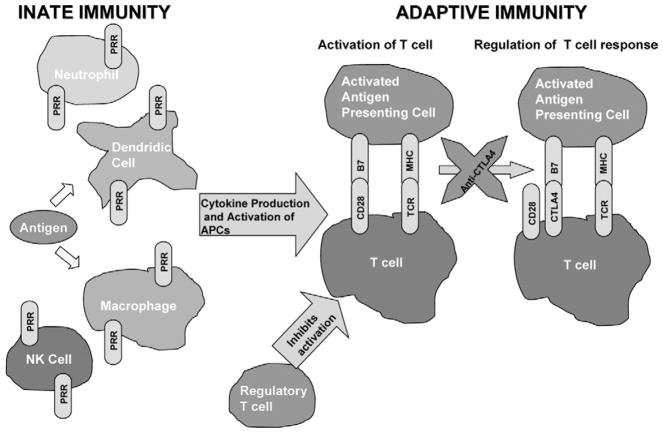Figure 1.
Antigen is presented in the context of major histocompatibility (MHC) molecules to T-cell receptor (TCR), referred to as signal 1, and costimulatory molecules, such as CD28 and B7, provide signal 2 to allow for T-cell activation. T-cell responses are then regulated by CTLA4 interaction with B7 so as to maintain homeostasis. Regulatory T cells can also suppress T-cell activation. In cancer patients, it is possible to interfere with the CTLA4-B7 interactions with anti-CTLA4 antibody thereby promoting enhanced T-cell responses.

